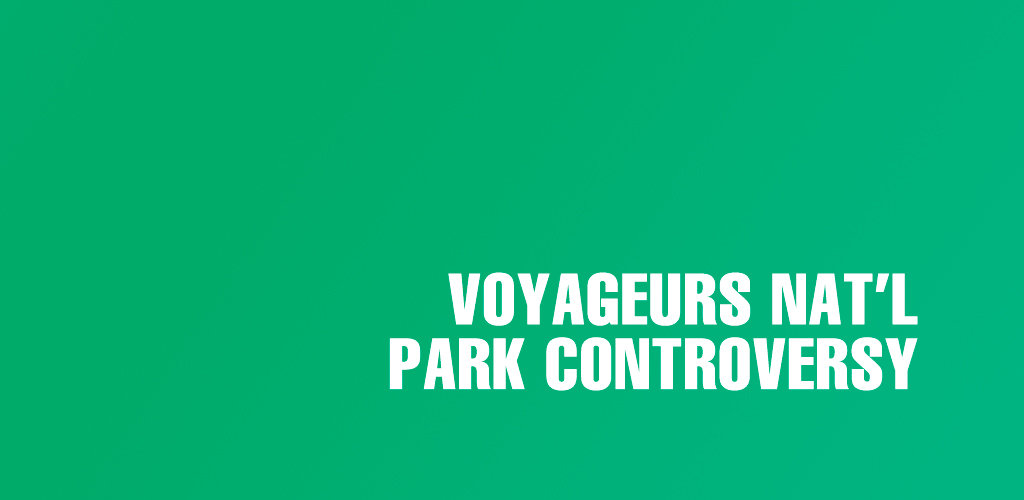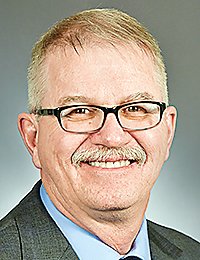Support the Timberjay by making a donation.
Ecklund says ‘overzealous’ law enforcement could impact VNP tourism
REGIONAL- Complaints from surrounding communities and business owners about what they see as overzealous law enforcement by Voyageurs National Park rangers have reached the ears of a local state …
This item is available in full to subscribers.
Attention subscribers
To continue reading, you will need to either log in to your subscriber account, or purchase a new subscription.
If you are a current print subscriber, you can set up a free website account and connect your subscription to it by clicking here.
If you are a digital subscriber with an active, online-only subscription then you already have an account here. Just reset your password if you've not yet logged in to your account on this new site.
Otherwise, click here to view your options for subscribing.
Please log in to continue |
Ecklund says ‘overzealous’ law enforcement could impact VNP tourism

REGIONAL- Complaints from surrounding communities and business owners about what they see as overzealous law enforcement by Voyageurs National Park rangers have reached the ears of a local state legislator, who is calling for federal and state actions to address the issue.
In a letter to the Timberjay, District 3A Rep. Rob Ecklund, DFL-International Falls, expressed concern about the allegations and the detrimental impact they could have on regional tourism. That letter appears in this week’s edition of the Timberjay.
“I have talked to the Park Superintendent (Bob DeGross) about these events The vast majority of the folks that come to spend their vacations in our great North Country are law-abiding citizens and have decided to spend their time and money in our communities,” Ecklund stated in his letter. “Bottom line: I want people to enjoy the park, provide jobs for our local businesses, have park rangers who are ambassadors for the park, and minimize harassing stops of our guests.”
Ecklund is calling for action at the federal level.
“I have requested that our federal congressional delegation support starting a civilian commission to have some oversight of law enforcement activities in the national park,” he said.
Ecklund has also initiated action at the state level, asking Minnesota House of Representatives legal staff to research the possibility of starting up a Voyageurs National Park Citizens Commission.
He has also asked Minnesota Department of Natural Resources Commissioner Sarah Strommen to review the agency’s agreements with the park concerning law enforcement.
"I have always been a staunch supporter of our law enforcement,” Ecklund said. “I believe that we can have a rational conversation about how law enforcement interacts with our tourists and the tourism economy. I have called upon the superintendent of the park to return to historic levels of ranger activity in the park, because I do not believe there is cause today to increase stops of our citizens.”
DeGross and other park officials were made aware of concerns about overly-aggressive law enforcement in a series of four community meetings in July that were initiated by DeGross. As previously reported in the Timberjay, the final meeting was held July 21 at Crane Lake, where participants registered a litany of concerns, some of which included a park law enforcement culture of unwarranted and excessive stops, rangers acting rudely or in a demeaning manner to visitors, a lack of transparency from park officials about law enforcement activities, and fear of retaliation among visitors and businesspeople should someone register a formal complaint about the conduct of rangers.
Participants also said the negative law enforcement culture they have perceived this summer is a sharp departure from summers past, with some suggesting Supervising Ranger Joshua Wentz’s arrival at the park last fall could be a contributing factor.
Underlying all of that was the collective ire directed at the tasing earlier this summer of Ebel’s Houseboats owner Justin Ebel by rangers and the ongoing refusal of park officials to release any information about the incident or to acknowledge its impact on members of the business community. Both Wentz and DeGross declined to provide the Timberjay with any information and indicated information would have to come from the Minnesota U.S. Attorney’s office, which has also failed to respond to multiple requests by the newspaper for information. A referral to the U.S. Attorney’s office suggests the likelihood that the incident is currently being or will be reviewed by a grand jury for possible charges against Ebel. Ebel and his attorney also declined to provide any information.
Action plan
DeGross said he would review the comments and other information provided in the meetings and develop an action plan to address the concerns. He released his response by email on Aug. 11, four days ahead of his self-imposed deadline.
DeGross began his letter by contrasting a “typical year” of park law enforcement case numbers and citations with the current year.
“Voyageurs averages around 167 law enforcement case numbers resulting in an average of 53 citations, in relation to 240,000 visitors annually,” he said. Two-thirds of those cases occur during open water season, he said, with four out of 10 citations involving vessel and vehicle safety issues. Another 33 citations involve natural resource violations.
As for the current year, DeGross said, “With the historic flooding in 2022, a notable increase in stops and citations is related to no-wake zone violations. It is likely we will end the year slightly up for that reason, potentially having around 185 case numbers with around 70 citations issued.”
Five of the eight items in the action plan directly address issues of communication. DeGross committed to:
• Having park rangers visit in-person with the owners and staff of willing area resorts/businesses, and maintaining those relationships by checking in annually, at a minimum, with meetings serving as opportunities to maintain open communication and answer questions. DeGross also said he would continue to attend lake/property owner association meetings with staff and continue hosting annual meetings with commercial operators and houseboat companies.
• Developing ways to increase community-oriented enforcement for more positive and professional visitor contacts.
• Requiring park rangers to immediately introduce themselves and give the reason for initiating a contact with visitors.
• Communicate monthly as to trends related to visitation, law enforcement activities including •Improve organizational communication about the role of park service visitors and resource protection (law enforcement) rangers, including as it related to standard polices, procedures, and partnering with other agencies.
The three additional steps DeGross outlined may provide solutions to specific issues raised in the meetings. They are:
• Exploring solutions to limit the potential of checking the same vessel multiple times in short succession unless there are observed violations, and improving how contacts are tracked.
• Exploring the option of an early or pre-season vessel safety inspection and providing a sticker to identify vessels that passed to limit the likelihood of being repeatedly stopped and reinspected.
• Continue the current ranger performance assessment practices for quality control and investigate complaints or refer them to the NPS Office of Professional Responsibility.
DeGross also asked business owners and community members to help them by providing park visitors with information about various regulations, sharing safety messages, encouraging compliance with vessel safety laws, and providing feedback to Wentz when a business or visitor has a complaint, comment, or positive experience.
Business owner reacts
While several business owners were reluctant to be interviewed for this article, one who wasn’t was Cabins on Crane owner Drake Dill, who was an outspoken critic at the Crane Lake meeting.
“I’ve heard a few comments that Crane Lake was pretty hot about some of the situations that have happened this summer in the park. Quite frankly, I think with what’s gone on in the park, it’s been pretty mild. I’m not aware that Bob’s action plan has produced anything of any substance because everything that he’s proposed is what they were supposed to be doing all along. And I think a lot of people feel that way.”
“It was eight basic bullet points,” Dill said. “It’s that mentality that we’re going to avoid conflict. We’ve been saying all along there is a serious problem here. How easy it would have been to address that. That’s what’s bizarre, is that this was a relatively easy fire to put out.”
And Dill confirmed that the park’s response to the tasing incident remains a significant issue that needs to be addressed.
“The expectation of the four gateway communities to Voyageurs National Park after the tasing incident was that Superintendent DeGross was expected by the communities to bring his rangers to all of our communities and tell us, ‘This is ridiculous, this will never happen again.’ That’s what we’re looking for,” Dill said.
Like Ecklund, Dill would like to see a citizen’s council for the park be resurrected.
“We used to have a citizen’s council for the park,” he said. “Back when the park was formed there was so much friction with the local communities not trusting the federal government that the legislation to form the park mandated that there had to be an independent citizens’ council that works with the park to keep them honest.”
Dill said that the council was state-funded and was discontinued during a period of state budget deficits.
“Now that the state has a $9 billion surplus it may be time to look for avenues to get that citizens’ council funded again,” he said.
But for now, seeing is believing for Dill, and he’s taking a wait-and-see approach regarding the potential outcome of the action plan.
“Everyone’s telling the same story, and the park service, if they’re listening they’re not acting like it,” he said. “Because their actions are speaking a lot louder than their words.”






